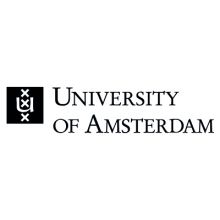Universities in the Netherlands have welcomed measures that would give them greater control over their international student intakes, as the popularity of Dutch institutions continues to pile pressure on staff and cities.
In a letter to parliament on 21 April, education minister Robbert Dijkgraaf sketched out a toolbox of new and expanded powers he will put at his and universities’ disposal, emphasising that each institution will be able to tailor their use to local needs, such as accommodating border-hopping students from Belgium and Germany.
But alongside promises of university-specific “differentiation”, new laws and agreements will also allow for more centralised management of intakes to serve the national interest, he said, such as swelling programmes that feed growing industries, or limiting growth that eats up scarce housing.
A made-to-measure approach will be needed because some Dutch institutions have opposing objectives for their internationalisation. While public research universities in major cities may be “bursting at the seams”, many vocational colleges and provincial or technical universities are eager to expand domestic and foreign intakes.
Under current rules, universities can only cap student numbers across an entire programme, but new measures will enable limits on non-Dutch-language tracks alone, an approach the University of Amsterdam began flirting with last year, despite the legal risks.
When popular programmes such as English-taught political science and psychology are almost full, universities will now get the option of closing them to non-European Union applicants, avoiding a bloc-wide ban against discrimination based on nationality, the minister said.
“Using this targeted, long-term approach, I want to prevent the quality of education in our colleges and universities from coming under so much pressure that our leading international position is undermined,” said Dr Dijkgraaf in a statement. “My aim is to strengthen that position.”
“It is good news that the minister is now making this customisation possible,” said Pieter Duisenberg, chair of Universities of the Netherlands, a sector umbrella body that has been campaigning for international student controls since 2018.
Dr Dijkgraaf, a theoretical physicist who until his appointment in 2022 was director of the Institute for Advanced Study in Princeton, scrapped a more uniform and controversial fix proposed by his predecessor, which focused on English-language instruction only. “We need a brake as well as an accelerator – and, above all, we need a steering wheel,” he said of the new raft of measures.
Many of the political tensions around internationalisation still stem from the use of English on campuses and predate the rattling prime minister Mark Rutte’s liberal-conservative coalition received from an insurgent right-wing party at local elections this March.
Dr Dijkgraaf has begun drafting a bill that will promote Dutch language skills among all students and could come into effect as early as September 2024. The ministry said it would make it possible to oversee “acceptable exceptions” when non-Dutch courses may be offered.
As well as the law, the ministry will use institutional agreements to govern international intakes, targeted student recruitment, Dutch-language university administration and the information provided to applicants about local housing. The details of these are yet to be revealed.
Mr Duisenberg said he hoped the toolbox would also come with changes to how public universities are funded, allowing a move towards a sector where funding is “less dependent on student numbers and market shares”.
“The current funding system is a distribution model. It is a model that does not suit the challenges of the moment,” he said.
Register to continue
Why register?
- Registration is free and only takes a moment
- Once registered, you can read 3 articles a month
- Sign up for our newsletter
Subscribe
Or subscribe for unlimited access to:
- Unlimited access to news, views, insights & reviews
- Digital editions
- Digital access to THE’s university and college rankings analysis
Already registered or a current subscriber? Login










